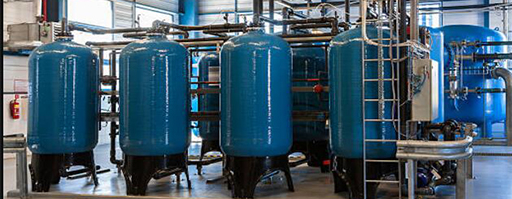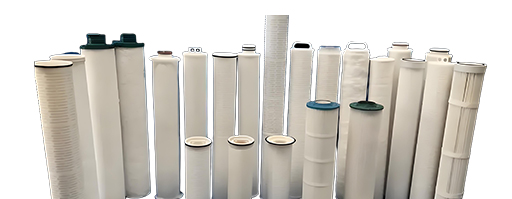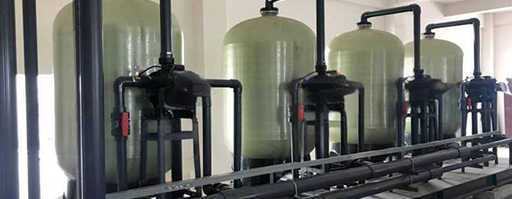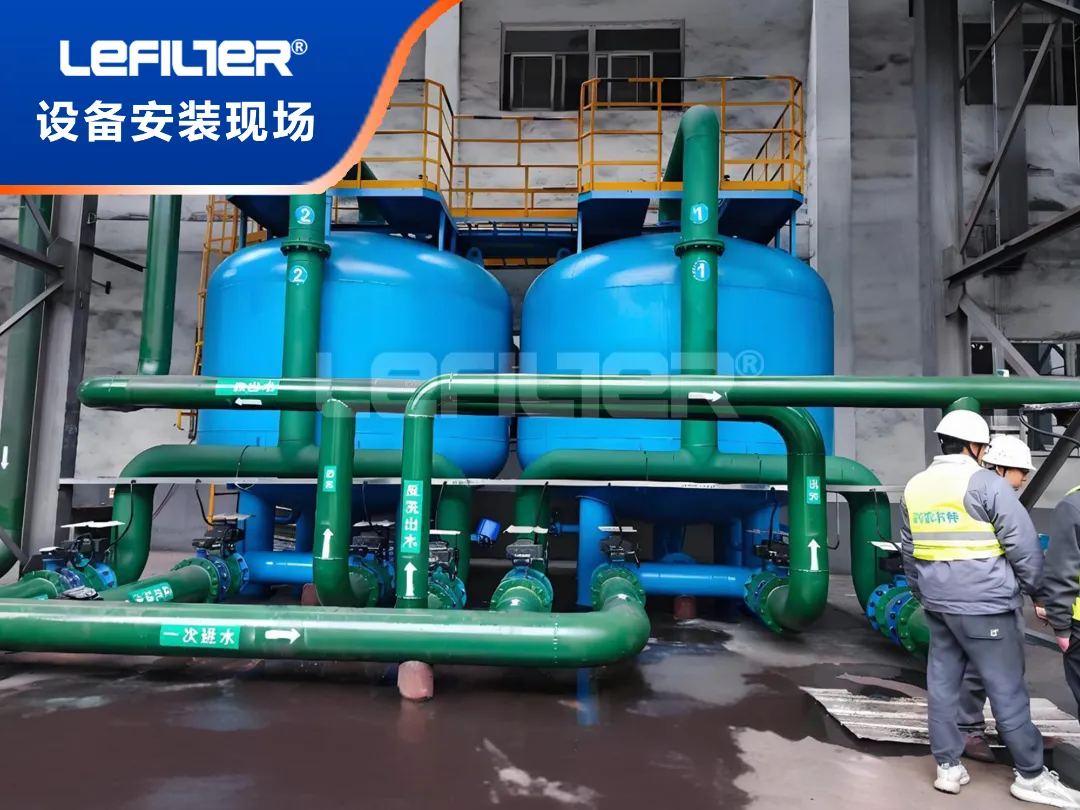Security Filter Protection
Publication time:2025-06-30
Preventing Equipment Failure from Particle Contamination
Industrial water filtersystems serve as critical protective components in countless process environments, where even microscopic particulate contamination can lead to costly equipment failures, product quality degradation, or process interruptions. In modern fluid treatment setups—especially those involving sensitive downstream components such as reverse osmosis membranes, ultrafiltration units, high-pressure pumps, or precision dosing instruments—security filtration serves as the first and most essential safeguard against solid ingress.
Security filtration systems are specifically engineered to intercept abrasive particles, suspended solids, rust flakes, or other contaminants that may originate from upstream pipelines, storage tanks, or untreated source water, all of which pose significant risks to tightly toleranced equipment. For instance, RO membranes can suffer irreversible fouling or delamination if exposed to undetected solids, while pump seals and impellers may erode or seize, causing unplanned shutdowns and long repair cycles.
By placing high-efficiency safety filters for waterat the front end of a water treatment system, operators can prevent these failures before they occur, significantly reducing maintenance requirements, improving system uptime, and extending the operational lifespan of critical infrastructure. In industries such as pharmaceuticals, microelectronics, and food processing—where water purity and process continuity are paramount—this layer of protection is not optional, but a fundamental design necessity.
First Line of Defense in Aggressive Environments
Water filtration system components operating in aggressive chemical or corrosive environments face more than just particulate threats—they are constantly exposed to acids, alkalis, oxidizers, or brine solutions that can compromise structural integrity and reduce safety margins if not properly addressed at the filtration stage. In such scenarios, security filtration systems act as the first defensive barrier, removing solids that may react with or catalyze chemical degradation processes, while also protecting downstream media and coatings from physical intrusion.
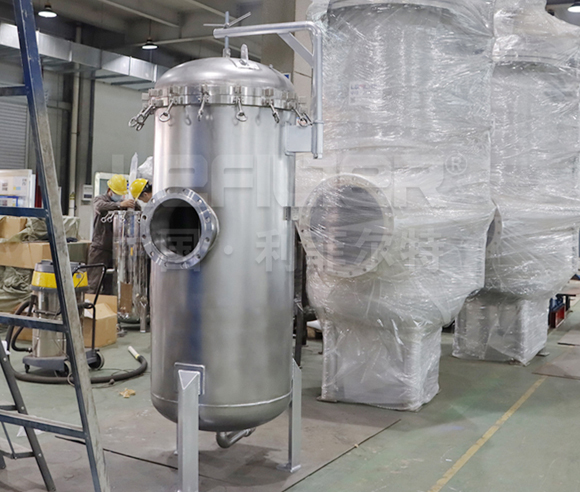
Commercial security filters designed for these extreme conditions are typically constructed from specialized materials such as 316L stainless steel, duplex alloys, or even fluoropolymer-coated carbon steel, ensuring long-term corrosion resistance and mechanical stability even when exposed to high-temperature chemical fluids. In high-corrosion industries—such as chlorine manufacturing, semiconductor acid handling, or desalination pretreatment—these filters prevent not only physical damage, but also uncontrolled reactions between particulate matter and reactive fluid components.
Industrial water filter housings in such setups are often fitted with enhanced sealing elements, including PTFE or Viton O-rings, and are pressure-tested to ensure leak-proof performance under both static and dynamic pressure conditions. The presence of a well-engineered security filter can therefore mitigate risks of equipment corrosion, avoid cross-contamination of fluids, and preserve process consistency in operations where chemical resistance is just as important as mechanical robustness.
Reducing Downtime and Maintenance Costs
Safety filters for water deliver measurable financial and operational value by significantly reducing the frequency of maintenance interventions, emergency shutdowns, and unplanned system stoppages caused by fouling, clogging, or wear-and-tear due to particulate intrusion. In large-scale industrial operations where every hour of downtime translates into substantial losses—whether in terms of production output, energy efficiency, or service reliability—security filters play a quietly crucial role in keeping operations uninterrupted.
By preemptively capturing harmful solids, security filtration systems reduce the stress on downstream components such as valves, flow meters, ion exchange columns, UV sterilizers, and chemical dosing pumps, all of which operate optimally only in low-turbidity conditions. In municipal water treatment plants, for example, effective filtration before disinfection stages leads to better UV transmission and lower chlorine demand, while in manufacturing lines, it ensures that critical water-dependent machinery operates at peak performance without risk of contamination-related wear.
Furthermore, commercial security filters with advanced features such as differential pressure monitoring, automatic venting, or drain ports allow operators to maintain oversight of filter condition and system integrity without the need for constant manual checks, thereby enabling predictive maintenance and optimizing replacement schedules. These features directly reduce labor hours, spare part consumption, and unscheduled maintenance cycles—delivering lasting benefits to both plant managers and facility engineers.
Safety-Enhanced Design for Hazardous Applications
Water filtration system safety has become a critical consideration in environments that handle pressurized fluids, flammable vapors, or hazardous chemicals—where filter failure could lead not just to equipment damage, but to serious safety incidents. For this reason, many industrial water filter manufacturers now offer models that are specifically rated for explosion-proof, corrosion-resistant, or high-pressure applications, compliant with international standards such as ATEX, ASME, or PED.
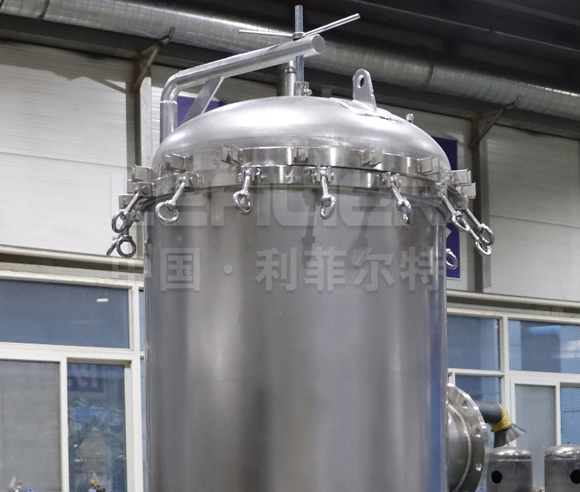
Security filtration systems engineered for such use cases may include structural enhancements like double-welded seams, pressure relief ports, spark-free materials, and shielded housings, all of which are designed to ensure operational safety even in fault scenarios. In industries such as petrochemicals, pharmaceuticals, offshore platforms, or power generation, such designs are essential not just for regulatory compliance, but for protecting both personnel and assets.
Some commercial security filters go even further, integrating smart sensors, remote alarm systems, and redundancy features that provide real-time operational data and alert operators to pressure surges, clogging events, or seal integrity failures. This level of intelligent protection transforms the security filter from a passive safety device into an active part of the system’s control and risk mitigation framework.
Ultimately, safety filters for water are no longer viewed as auxiliary components but as indispensable elements of a well-defended, efficient, and resilient water management architecture. Their role in system protection, energy savings, environmental compliance, and personnel safety continues to expand as industries seek greater automation, reliability, and sustainability from every component within their operations.

